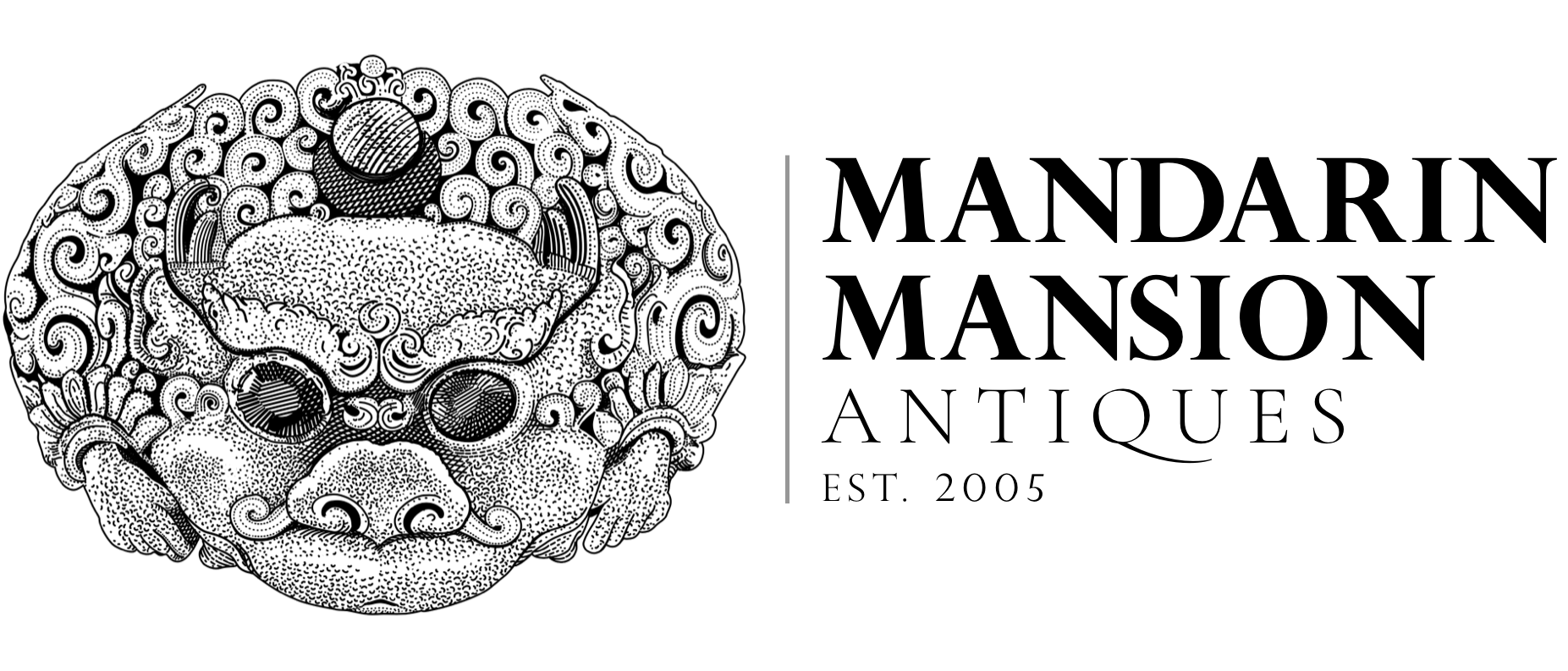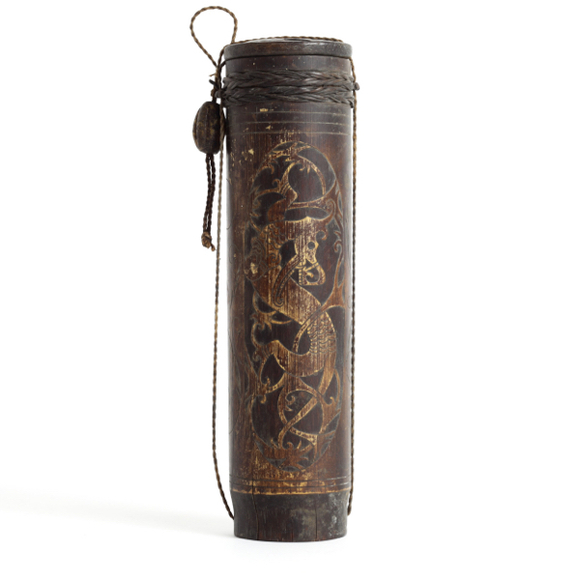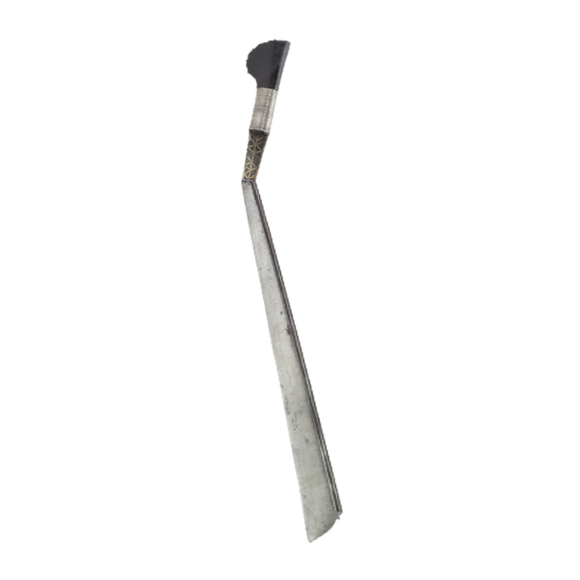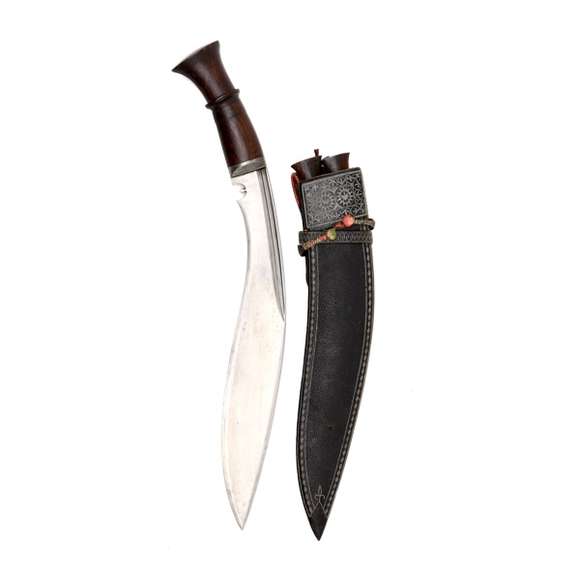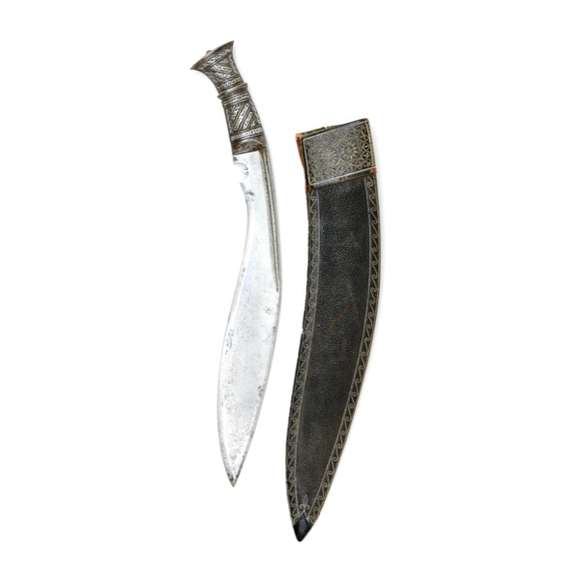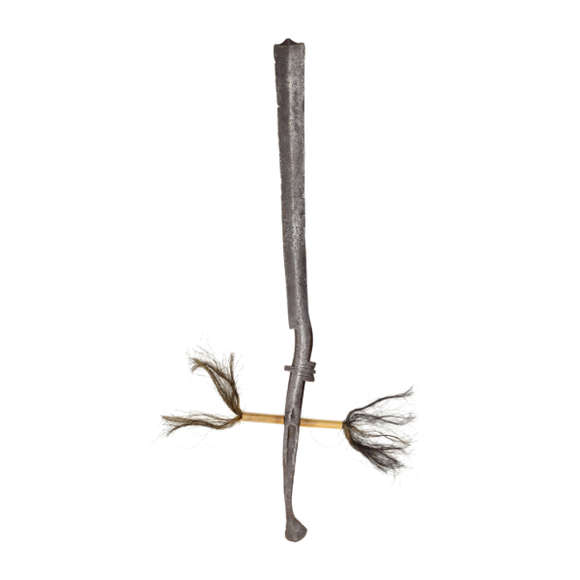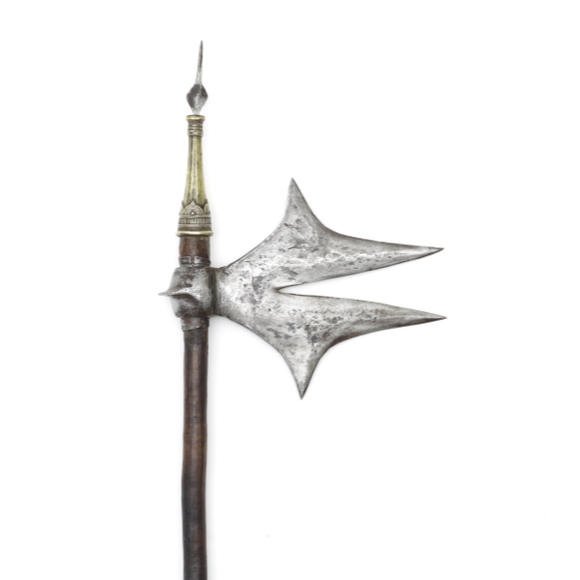Carved with typically Dayak aso "dog dragon" motifs.

Sheathed 67 cm
Sword 62 cm
49.4 cm
Base 9.7 mm
Widest 4.5 mm
Base 17.8 mm
Widest 36 mm
547 grams
12.5 cm from hilt
Iron, steel, brass, copper, wood, rattan, palm back, bone, cotton thread, glass beads
Borneo
19th century
Dutch antique art market
Description
A very interesting old mandau with some features that are not often encountered. First and foremost, the blade is made of laminated steel, which is probably a sign of a rather early production.
Inlaid into the blade are two stylized aso the dog-dragon of Dayak mythology. Normally these are done in either brass or silver, but in this case, they are brass with copper lining. Their very round style appears to be a somewhat early feature, also seen on another very early mandau I have listed here. Further up the blade are two rows of brass dots which in turn are stamped with the shape of a cross with flaring spokes.
Hilt
The hilt is again very unusual. Carved of deer antler with its sideways protruding part carved like a spiral. On top are three small faces.
The grip is wrapped with a type of black cord instead of rattan. The gutta-percha covering part of it indicates that this is original and probably not a later repair.
Scabbard
The scabbard is made of wood, with two circular wrapped rattan bindings called poesět-blanak. It has some additional straight bindings for added strength. At the back of the scabbard is a těmpěsing, a sheath for the by knife.
The by knife, called pisau raout, is of very good quality. It is made with wooden, horn and antler shaft with very nicely carved pointed pommel piece with a small face carved into it.
The scabbard is further embellished with colorful glass beads, called těpěngah in Dayak.
Dating and attribution
This one is rather hard to place both time-wise and geographically. I believe it is probably quite early, possibly early to mid-19th century. Mandau expert Maurice Bloebaum believed it may originate from the fringes of Central Borneo.




















An understated, elegant khukuri of substantial proportions with fine layered blade.
With iron, silver overlaid hilt. Its associated scabbard features fine quillwork.
This peculiar sword was used by the Garo people of Assam for fighting, clearing the jungle, and animal…
